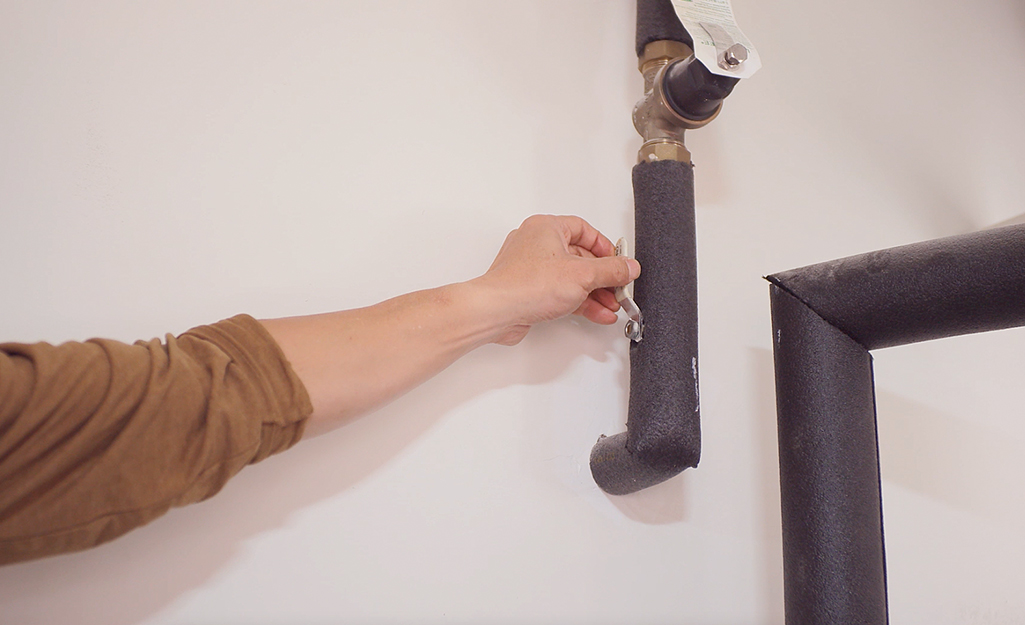What are your insights and beliefs on Why Is It Important To Fix Your Leaking Tap/Faucet??

Leaking faucets may feel like a small trouble, yet their influence surpasses just the nuisance of the audio. From drainage to sustaining unnecessary financial costs and health and wellness risks, disregarding a dripping faucet can lead to various repercussions. In this post, we'll explore why it's vital to resolve this typical home issue promptly and successfully.
Waste of Water
Environmental Effect
Dripping taps add substantially to water waste. According to the Environmental Protection Agency (EPA), a solitary tap dripping at one drip per second can throw away greater than 3,000 gallons of water each year. This not just stress water resources yet additionally impacts communities and wildlife depending on them.
Step-by-Step Guide to Repairing a Dripping Tap
Devices Required
Prior to attempting to repair a dripping tap, gather the necessary devices, including a flexible wrench, screwdrivers, substitute parts (such as washing machines or cartridges), and plumber's tape.
Common Tap Issues and Their Solutions
Determine the sort of faucet and the specific problem causing the drip. Usual issues consist of worn-out washing machines, corroded shutoff seats, or defective O-rings. Describe producer guidelines or on the internet tutorials for detailed assistance on repair work.
Financial Prices
Enhanced Water Costs
Beyond the ecological impact, trickling faucets can pump up water costs significantly. The gathered waste with time translates right into higher energy expenditures, which could have been stayed clear of with timely repair services.
Possible Residential Property Damage
Furthermore, long term leaking can lead to harm to fixtures and surface areas surrounding the faucet. Water build-up can cause staining, deterioration, and also architectural concerns if left neglected, leading to extra fixing prices.
Health and wellness Worries
Mold And Mildew and Mildew Development
The constant visibility of dampness from a leaking tap produces an ideal setting for mold and mildew and mold development. These fungi not just endanger interior air quality yet likewise present health risks, especially for individuals with breathing problems or allergic reactions.
Waterborne Conditions
Stationary water in trickling taps can come to be a breeding place for microorganisms and various other virus, enhancing the risk of waterborne diseases. Contaminants such as Legionella bacteria thrive in stagnant water, possibly leading to serious illnesses when consumed or breathed in.
Do it yourself vs. Expert Repair service
Benefits and drawbacks of Do It Yourself Fixing
While some might try to take care of a leaking faucet themselves, DIY fixings feature their very own set of challenges. Without proper expertise and devices, DIY efforts can aggravate the issue or lead to incomplete repair work, prolonging the problem.
Advantages of Working With a Specialist Plumber
Working with a specialist plumber makes certain that the underlying reason for the dripping faucet is resolved properly. Plumbing professionals possess the competence and tools to detect and repair tap concerns effectively, saving time and decreasing the danger of further damages.
Environmental Responsibility
Specific Payment to Conservation
Taking duty for taking care of dripping taps lines up with broader initiatives toward water preservation and environmental sustainability. Every person's actions jointly make a significant influence on preserving priceless resources.
Lasting Living Practices
By prioritizing punctual repair services and adopting water-saving routines, individuals contribute to lasting living methods that profit both present and future generations.
Safety nets
Regular Upkeep Tips
To prevent leaking taps, carry out regular maintenance such as cleaning up aerators, inspecting for leaks, and changing worn-out parts without delay. Additionally, think about installing water-saving devices or updating to more effective components.
Relevance of Prompt Repair Works
Dealing with dripping taps as quickly as they're noticed avoids more water wastefulness and potential damage, eventually conserving both water and cash in the long run.
Effect On Property Value
Understanding of Well-Maintained Building
Maintaining a building in good condition, including addressing maintenance problems like leaking taps, boosts its regarded worth and desirability among potential buyers or occupants.
Impact on Resale Value
Characteristics with well-maintained plumbing fixtures, including faucets, command higher resale values in the realty market. Attending to leaking faucets can contribute to a positive perception during home assessments and settlements.
Verdict
Addressing a leaking tap exceeds simple convenience; it's an essential action toward saving water, decreasing economic expenses, and securing health and wellness and building. Whether via do it yourself fixings or specialist assistance, taking action to fix trickling taps is a little yet impactful means to promote responsible stewardship of sources and add to a much healthier, a lot more lasting future.
How to Fix a Leaky Faucet: Step-by-Step Repair Guide
A leaky faucet may seem like a simple annoyance, but if it's not fixed promptly, that leak could cost hundreds to potentially thousands. From water damage to mold, mildew, and high water bills, even a tiny leak can be catastrophic if left unattended. Damage like this can even affect the overall value of your home, so it's important to take the right approach for leaky faucet repair. You may need the help of a plumber in some cases, but we've got a few tips you can try on how to fix a leaky faucet before calling the pros.
Four Faucet Types
When you're learning how to fix a leaky faucet, the first step is knowing what kind of faucet you're working with! There are four common types.
Cartridge Faucets
Cartridge faucets come in one- or two-handled varieties. In one-handled cartridge faucets, hot and cold water combines in a single cartridge. In the two-handled versions, hot and cold water are controlled separately and mixed in the faucet.
Ball Faucets
Ball faucets have a single lever you push up and down to adjust the pressure and rotate to change the temperature. A slotted metal ball controls the amount of water allowed into the spout.
Compression Washer Faucets
They're the oldest type of faucet, but they're still used in many homes — especially older ones. Compression faucets have two separate handles that, when turned, raise or lower the washer that seals a water valve. This valve stops water from flowing through the faucet when it is turned off.
Disc Faucets
Disc faucets rarely need to be repaired due to their maintenance-free design. The water flow is controlled by two discs — the upper one raises and lowers against a fixed lower disc, creating a watertight seal. If your disc faucet starts leaking, you may need to replace the seals or clean residue buildup from the inlets.
Fixing a Leaky Faucet
Step 1: Turn Off the Water
Whether you're learning how to fix a leaky bathtub faucet or how to fix a leaky kitchen faucet, always turn off the water supply to your working area when you're fixing a leak. The last thing you want is a flood added to your list of things to fix.
Look for the shutoff valves below your sink or around the tub and turn them clockwise to stop the water flow. If your faucet doesn't have shutoff valves, you may need to turn off the water for the whole house. Check to make sure it's off by turning the faucet on. If nothing comes out, you're ready to start the repair.
Step 2: Take Apart the Faucet
How you disassemble your faucet depends on the type of fixture you have. You can use a flathead screwdriver to remove the caps on top of the handle or handles for cartridge and compression faucets. Inside, you should see handle screws. Unscrew these with a screwdriver to remove the handle.
Disc- and ball-style faucets will typically have an inlet screw near the handle, and removing that will reveal the interior of the faucet.
Detach the Valve Stem
For cartridge- and compression-style faucets, you'll see the inner valve stem or cartridge once you remove the faucet handles. If you have a compression faucet, unscrew the brass valve stem. If you have a cartridge faucet, pull out the cartridge. If your cartridge has been in place for a while, it may require some tools or extra force to remove it due to mineral deposits.
Examine and Replace Parts
Once you've removed the parts, check them out to confirm what needs to be replaced. You may see corroded rubber washers, O-rings, stems, or cartridges. On a ball-style faucet, check the seats and springs for damage.
If you need to repair a leaky disc faucet, check the inlet and seals on the lower disc.
Once you determine what parts must be replaced, visit your local hardware store. Bring the damaged parts with you to ensure you can purchase the correct components to replace them.
Clean Valves and Faucet Cavity
If you've removed a stem or cartridge, you may notice mineral buildup in the faucet's threads. Use white vinegar to clean the valve seat by soaking it for a few minutes, then scrub it away with a soft toothbrush and rinse with warm water. You can also clean the interior of the faucet in the same way.
Reassemble the Faucet
Once your faucet is cleaned and the required parts have been replaced, it's time to reassemble it. Put the pieces back together and slowly turn the water supply back on. Doing this slowly is crucial because too much initial water pressure can damage the new hardware you've just installed.
https://homewarranty.firstam.com/blog/how-to-fix-leaky-faucet

I stumbled upon that post on Leaky Faucets: Why They Happen & What to Do About Them when surfing around the internet. Liked our posting? Please quickly share it. Let somebody else locate it. Thanks a lot for your time. Don't hesitate to come visit our website back soon.
Comments on “What It's Essential to Address a Leaking Faucet”